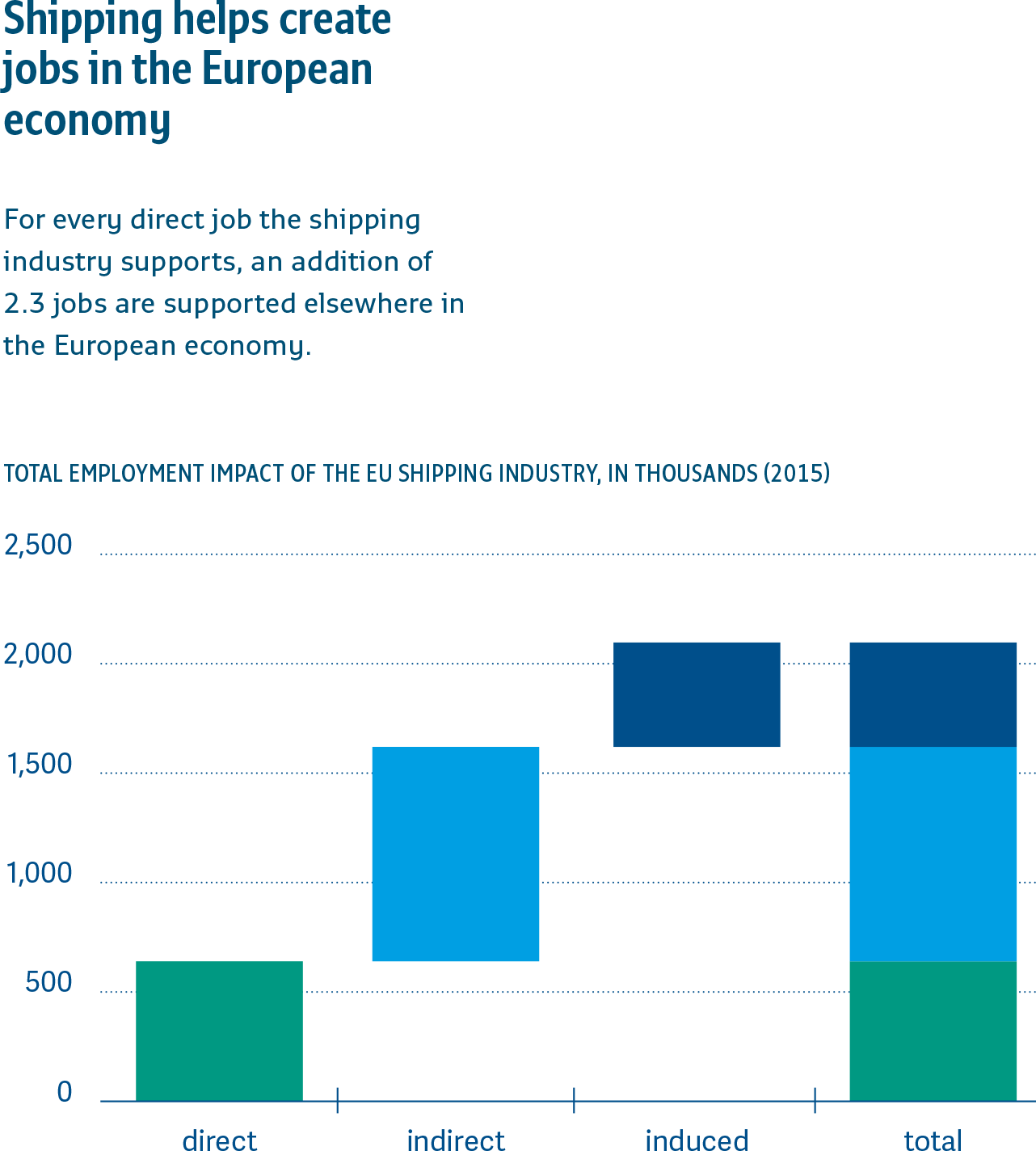Human Resources
Maintain Europe’s leadership in maritime knowledge by making the sector more attractive and ensuring diversity in the workforce.
European shipping should not only remain the leader in maritime shipping, but also the leader in maritime knowledge.
In view of its global nature, the living, employment and working conditions of seafarers and the standards for their training and certification are regulated through two international instruments that provide the overarching framework for human resources in the global shipping industry.
The ILO’s Maritime Labour Convention (MLC) regulates the employment and working conditions of seafarers while the IMO’s Convention on Standards of Training, Certification and Watchkeeping (STCW) for seafarers ensures the respect of quality standards for training and certification. Both these Conventions are transposed and implemented in EU Directives. Within this framework, EU shipping employs 640,000 people on board and onshore, and creates meaningful career opportunities for young people. The EU shipping industry cannot exist without skilled professionals. They are a wealth of knowledge and expertise that should be protected and preserved.
The Social Partners’ Agreements on the ILO Maritime Labour Convention, 2006 (MLC) implements the Convention into EU and is appended to Directive 2009/13/EC as updated by Directive 2018/131/EC, while the implementation of the STCW Convention is done through Directive 2008/106/EC on the minimum level of training of seafarers and Directive 2005/45/EC on the mutual recognition of seafarers' certificates issued by the Member States.
Representing the EU shipping industry, ECSA is committed to the promotion of European shipping as a world leader in quality and competitiveness. An essential component of this is the availability of a highly skilled and motivated seafaring workforce. The maritime industry is a major source of employment in Europe, both on ships and in the shore-side maritime clusters, where persons with sea-going qualifications are in high demand. Positive measures have been and continue to be taken by the EU legislators, national governments, the social partners and shipping companies to encourage young Europeans to embark on careers at sea.

ECSA is very proud to represent the employer group in the sectoral social dialogue committee for maritime transport which is among the most effective – and quite possibly the most productive – of all the European sectoral social dialogue committees. Not only have the social partners adopted two agreements that have been appended to directives, implementing the Maritime Labour Convention and on Working time arrangements, they have also played a major role in formulating a directive on enhancing the labour conditions for seafarers. Moreover, we work with our social partner on several initiatives to improve the shipboard working conditions. These include improving guidelines to eliminate shipboard harassment and bullying, sector-wide career mapping, addressing the human element in increased digitalisation and opening up the shipping sector for women. Further topics jointly worked on are the reduction of administrative burden on seafarers, Schengen visas for third-country seafarers, shore leave, migrants at sea and the effect on merchant ships and seafarers, criminalisation of seafarers, and stowaways.
Looking forward, ECSA sees the development of a European Maritime Growth plan as a framework for encouraging a sustainable operating environment for EU shipping.
For this reason, ECSA is committed to:
- continue working with the European Transport Workers’ Federation (ETF) as social partners to maintain and build on the successes of the Sectoral Social Dialogue in the Maritime Sector
- the development of a European Maritime Growth Plan – for sustainable maritime jobs, growth and competitiveness – enhancing the attractiveness, opportunities and competitiveness of both the EU fleet and EU seafarers
- work together with other partners in the SkillSea Project on a skills strategy for the shipping industry to enhance the skills base and ensure the education and training provided to EU seafarers is future-proof
